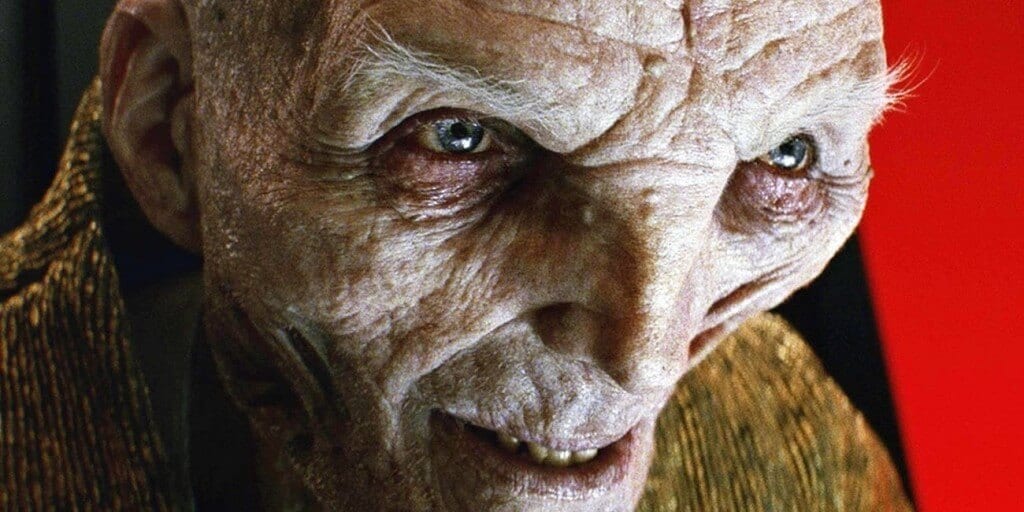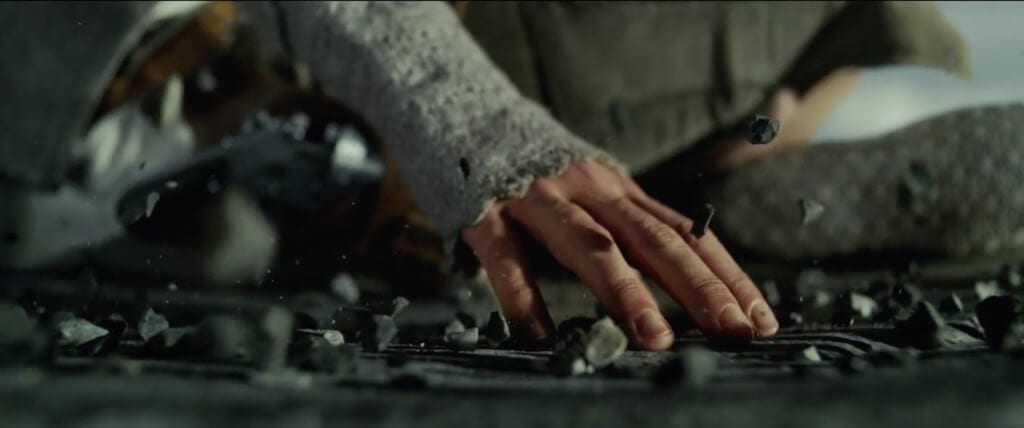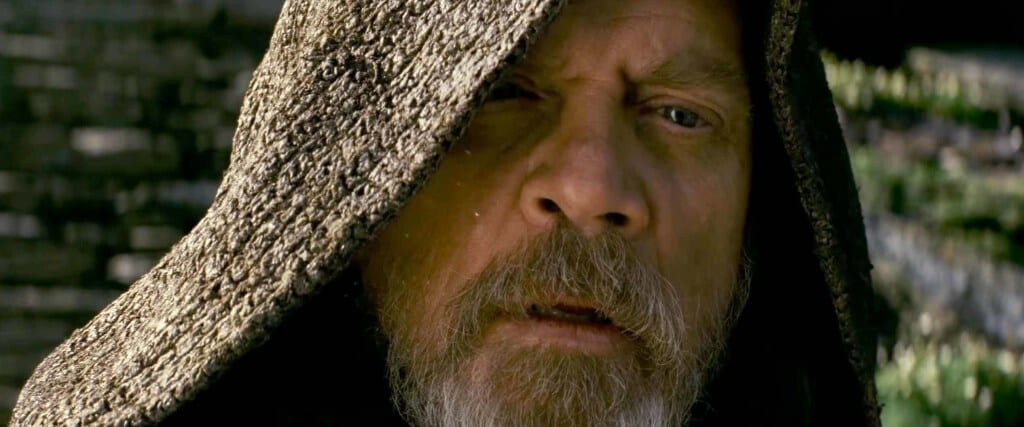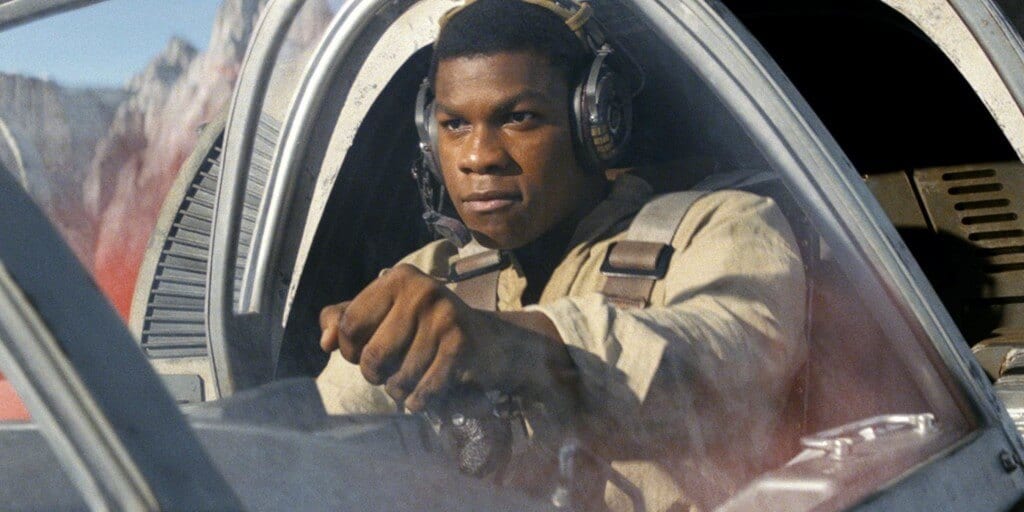The Five Main Reasons Why I Hate The Last Jedi
For the first few days after I saw The Last Jedi, I had no intention of writing about it in depth. Why bother? The damn thing isn’t worth discussing in any kind of detail; I don’t think I’ve ever seen a movie with this much contempt for its audience and its own franchise (outside the DCEU, anyway). I joked with friends that if I did write about it, the entire piece would consist of two words, the first of which I can’t print here. But (and I say this with all possible humility) I’ve been asked by people who want to hear from me on the subject, and I’ve had some time to cool down, so why not?
I hate The Last Jedi. I didn’t like The Force Awakens either, but this one is so bad, so insulting to even the most causal Star Wars fan, so flagrantly disinterested in complimenting anything that came before, it actually diminishes its immediate predecessor. I know there are plenty of people, even big Star Wars fans, who disagree with me; Ty Rothermal and Mike Kaye had a great discussion about why the movie works so well for them. But, unlike The Force Awakens, my company here isn’t small; there are a good number of folks who plum don’t like The Last Jedi.
I can’t speak for all of them, but there are a lot of little things being mentioned, and while I agree with most of them, I think they are symptomatic of larger issues. So these are the five main reasons why I hate The Last Jedi, and the multitude of smaller problems they create.
*SPOILERS FOR STAR WARS: THE LAST JEDI*

1.) It’s Another Remake
They did it again. After all the excuses, all the “They had to reintroduce Star Wars to a new generation” apologizing, all the assurances that we would be getting something new and different now that The Force Awakens got all the nostalgia out of the franchise’s system, Episode VIII is yet another retread of an entry in the original trilogy, this time The Empire Strikes Back. They pull some tricks to try to disguise what they’re doing; scenes happen in a different order, cosmetic changes occur, and moments ripped from A New Hope and Return of the Jedi are sprinkled in as well, but make no mistake, this is The Empire Strikes Back redux.
The young hero goes to a distant planet to learn from a Jedi Master, where she enters a cave and faces down her greatest fears, which involve the bad guy who wears all black. The remaining heroes are on the run from the Empire; they go to a swanky city on a nearby planet and hook up with someone they think is an ally but is actually in cahoots with the Empire. Two characters fall in love. The hero learns of her parentage while being asked to join the black-clad villain in taking over the Empire so they can rule the galaxy together, but she refuses. There’s a battle on a white planet with AT-AT Walkers converging on a Rebel base, and the main characters escape in the face of overwhelming odds. It ends with the good guys on the ropes, gathered together on a space ship after a loss but ready to keep fighting.
Give. Me. A. Break.
Do they really think making the planet covered in salt instead of snow will trick us into thinking it isn’t just a low-rent version of Hoth? Are the slightly curved feet of the walkers supposed to be enough to differentiate them from AT-ATs? Is DJ being a lowly prisoner instead of the leader of the city meant to convince us he’s not fulfilling the same purpose as Lando Calrissian? Is Luke’s hesitance to teach Rey such a big twist that we’re to applaud them for not reusing the Luke/Yoda dynamic? This is what I mean when I say the movie has contempt for its audience; we’re expected to buy that this is something completely new.

Moreover, the repurposed scenes and storylines are all lazily executed. The Hoth battle has nothing inventive; the AT-ATs just sit there like lumps instead of attacking and forcing the Rebels to improvise as they try to fight them. The Bespin Cloud City stand-in is a casino/horse stable where nothing interesting happens, and DJ is a plot device as opposed to an actual character like Lando was. The love story isn’t between two people we care about but Finn and some random engineer who was shoehorned in so he would have someone kiss at the end. (Not that this romance is set up in any way; that would require writing, and it’s much easier to have things just happen.) The training sequence consists of Luke hitting Rey with a stick once, then going back to being grizzly and not wanting any more Jedi. The infiltration of the Empire ship (taken from A New Hope) is flat, with none of the excitement of Luke and Han disguised as Storm Troopers, and it’s over so fast it feels like an excuse to set up a fight between Finn and Captain Phasma (who turns out to be a whole lot of nothing). Instead of pursuing the heroes through space and across planets, the First Order just kind of sits there looking at them for the bulk of the film, and no tension whatsoever is mined from the impending doom we’re, I guess, supposed to feel.
Even the shot recreations lack any power. For example, they replicate the Rebel looking at the approaching AT-AT Walkers through a pair of binoculars. This was an excellent moment from The Empire Strikes Back, dripping with dread and tension as the ragtag Rebel Alliance looked upon the behemoths that would bring about their destruction. All that same shot evokes in The Last Jedi is the bread and butter of these new movies: nostalgia. Instead of fearing the raw power of the Empire, we’re stuck with remembering this same moment from a much, much better movie.
And that’s the rub: when you rely on callbacks to the past, you have nothing to make your new movie worthwhile.

2.) It All But Ignores The Force Awakens
For a movie so stuck in the past, The Last Jedi seems completely uninterested in the film it’s actually following. The Force Awakens set up a series of mysteries (too many for my taste, but just the same), and The Last Jedi either answers them unsatisfactorily or just pretends they don’t exist. For people who liked Episode VII, I can’t imagine this movie is the least bit satisfying.
One of the bigger unexplained elements of The Force Awakens was the political situation. In the original trilogy, no further explanations were needed; an Empire had taken over all the different planets in the galaxy, swallowing their regional governments, and the Emperor was the head of the Empire. Simple. But that’s not true of the sequels. If the Rebellion won in Return of the Jedi, they should be in charge, but the First Order is basically the Empire, a massive army led by Force-wielders (are they Sith?) who have highly advanced weaponry and use all the same uniforms and designs as their evil forebears. The good guys are now “the Resistance,” which is more or less the same as calling them Rebels. How is any of this possible? What happened in the intervening years to create what has to be a massive shift in power dynamics? Surely this would have to be explained in a later movie.
Well, it’s not going to be. The Last Jedi just pushes ahead as if all of this was perfectly logical, and given the way things turn out with the First Order, I can’t imagine it’ll ever be addressed. People are focusing on the lack of a backstory for Snoke, but that’s really just a symptom of this because his identity would necessarily be tied into the First Order. Now that he’s been dispatched rather decisively, both his history and that of his regime will remain a plot hole. I can’t see them getting into this in Episode IX, where the focus will be even more on new Supreme Chancellor Kylo Ren. And even if it is, it’ll be hard to care about the origins of a character they discarded a whole movie ago.
The other major question was the identity of Rey’s parents. There was rampant speculation, particularly as Rey was so adept at using the Force with no training whatsoever. There had to be a reason for her seemingly infinite skills, and undoubtedly it tied into her lineage, whatever it would end up being. Unlike Snoke and the First Order, an answer is given, but it’s kind of a letdown. Rey’s parents were just a couple of random people who abandoned her. (Give Tony Sin his due; he called this.) If things were different this could have been interesting, but given all of Rey’s power, the fact that the Skywalker lightsaber called to her, the implied mystery of it all, it just doesn’t jibe.

3.) It Doesn’t Understand The Force
Rey’s abilities are explained, but it’s the worst explanation they could’ve possibly given, one that invalidates large swaths of what has come before. According to The Last Jedi, the Force is not something to be studied, practiced and mastered, but rather something anyone can utilize at any time, in any capacity, with no training or even foreknowledge necessary. That’s how Rey could use the Jedi Mind Trick and beat a Luke-trained Force wielder half to death seemingly out of the blue. That’s how some little kid can call a broom to him in the film’s final moments. That’s why my head is still in danger of exploding from the sheer stupidity of this plot point.
If no training is necessary, Luke’s entire journey through the original trilogy was meaningless. He didn’t need to learn how to use the Force; he could’ve just done it on his own. His being a Skywalker was equally benign. He was ready to fight Darth Vader before he even met Obi-Wan Kenobi; all he had to do was… I don’t know, want to really badly, I guess. Nothing has to be earned, nothing comes with a cost, there are no difficult decisions to make; there is no difference between that little kid at the end and Yoda.
Given this, why should we care about anything having to do with the Jedi, the Sith or the Force? If it’s something anyone can do at all times, why is it special? Why even carp on it? Just have every single Resistance fighter and every single Storm Trooper start blasting each other through walls with a wave of their hands, or using the Jedi Mind Trick to get each other to switch sides (which could lead to some funny scenes where the Storm Troopers are the good guys and the Resistance fighters the bad). This is something you’d find in really bad fan fiction, but it’s now playing on half a dozen screens at a theater near you.

4.) It Doesn’t Understand Luke Skywalker
In the original trilogy, Luke was a young man yearning for adventure, a farm boy who got to live out his wildest fantasies, who trained to be a Jedi out of sheer determination, who let go of his hopes for glory and set out to save his father’s soul, who would risk everything for his friends, and who saw good in the blackest of hearts. Before this movie even starts, that guy is dead.
Luke has lost faith in the Jedi, and wants the order to die with him. Why? Because he sensed the darkness in Kylo Ren and tried to kill him (he says he only considered it for a second, but his lightsaber was out and activated, so I think it’s safe to say it went beyond just a passing thought), but was defeated and let loose the evil that is currently consuming the galaxy. Luke Skywalker, the guy who brought the most evil man in the universe back to the light side of the Force, freaked out and almost resorted to murder because his emo nephew had the potential to turn to the dark side. Then, instead of doing anything at all to rectify his mistake, he went into hiding, waiting for death while others suffered and died for his mistake. Where was all his hope and optimism? What happened to him that caused him to be so paranoid that he’d kill a teenager rather than just try to teach him balance and control? Why would he be content to allow the evil he unleashed to flourish? There are no answers to any of these questions; this is just Rian Johnson’s version of Luke, and much like the Force, it is incompatible with the established canon of this world.
Beyond his character inconsistencies, The Last Jedi makes the point over and over that there is nothing special about Luke Skywalker. Kylo Ren defeated him while he was still an apprentice. He doesn’t use the Force to do anything cool. He has almost no bearing on the plot whatsoever. During the climax on Not-Hoth-But-Also-Totally-Hoth, Luke steps onto the battlefield, facing down the entirety of the First Order’s forces, and it finally looks like something amazing is going to happen. Kylo orders his minions to fire everything they’ve got at Luke, and Luke steps out of the smoke without a scratch, brushing some dust off his shoulder as if the hell rained down by the weapons of war was barely an annoyance. This had to be it; the moment when Luke Skywalker would unleash his full power like nothing we’d ever seen before and crush the villains as only a true legend could. Disappointingly, that’s swept aside for a lightsaber fight with Kylo, but still, you could feel something epic was about to happen. But no; he was just an astral projection all along. The real Luke sat safely on whatever that stupid cliff planet was, playing what essentially amounted to a video game before keeling over and dying because reasons. After being severely disappointed by The Force Awakens, seeing Mark Hamill as Luke Skywalker again was the main reason for my checking out The Last Jedi; now, I wish Return of the Jedi was his swan song.

5.) It Doesn’t Understand Death
Like The Force Awakens, The Last Jedi doesn’t know when or how to kill its characters. Aside from Luke, there’s Finn, who was all set for a heroic sacrifice that would not only be cool as all get-out, but the perfect end to his character arc (from deserting the First Order to giving his life to fight them). I guess they couldn’t find a corresponding plot point from The Empire Strikes Back, though, so this was scrapped in favor of a belabored, unearned rescue from Rose, who for all she knew was dooming the entire Resistance so she could make some ridiculous statement about choosing life over death (in a war where they will now have to kill a lot of people) that wasn’t set up at all. Like Poe’s miraculous recovery in The Force Awakens, Finn is robbed of the death his character deserved.
Then there’s Leia. She doesn’t die when her ship gets a hole blown in it; instead she flies through space and onto another vessel, where she quickly goes into a coma so Laura Dern can take over for her. Dern then commands the Resistance until Leia awakens, ultimately giving her life to save everyone else. Um… why does this character even exist, and why couldn’t Leia do every single thing she did? When she wakes up, Leia makes it clear that she would’ve made the same command decisions Laura Dern does. And if it was Leia sacrificing herself to save the Resistance, it would’ve actually held some weight. Instead, we say goodbye to a placeholder whose death means absolutely nothing. For a series of movies as in love with killing off the heroes from the original trilogy as this one is, they sure passed up a great opportunity to have one die with a shred of dignity.
And speaking of undignified deaths, Snoke goes out like a chump, unable in all his immense Force powers (not that those matter anymore, as we’ve already covered) to sense that Kylo Ren was about to kill him instead of Rey. Not only are we robbed of learning anything about him or his movement, but his previous displays of power are rendered moot because he couldn’t see the one thing he was actually concentrating on. I understand they’re trying to make the point that Kylo Ren was the real threat all along, but you can’t have it both ways; Snoke can’t have the power to telepathically connect two people across an entire galaxy one minute, then miss what’s going on in one of those very same people’s heads while they’re in the room with him the next. They don’t even attempt an explanation, like Kylo was using every ounce of concentration to hide his intentions from Snoke; a bit shaky, but at least it would’ve been something. Death, or the lack thereof, isn’t an important moment for any of these characters, but rather a means of getting the plot from A to B so the movie can end.
***
The Last Jedi is a slap in the face. It remains as beholden to the original trilogy as The Force Awakens was, but seems to resent the structure imposed upon it and tears down the foundations of the mythology in a Kylo-Ren-like tantrum. (Ren is actually a pretty apt metaphor for this new trilogy; he’s determined to replicate the iconography of his predecessor, but fails at every turn and destroys the legacy he seeks to claim as his own in the process.) It killed any lingering shred of hope I had for the future of the franchise; we all know what’s coming next in the main episodes because it already happened in 1983, and I don’t care what Han Solo, Obi-Wan Kenobi, Yoda and Boba Fett were like as teenagers. And now that Luke, Han and Leia (who will have to be written out due to Carrie Fisher’s unfortunate passing) are gone, there’s nothing at all compelling me to stick around. The Force Awakens and Rogue One were pretty heavy blows, but The Last Jedi is the final nail in Star Wars’ coffin.
And Porgs suck.







